The Era of Mastodon
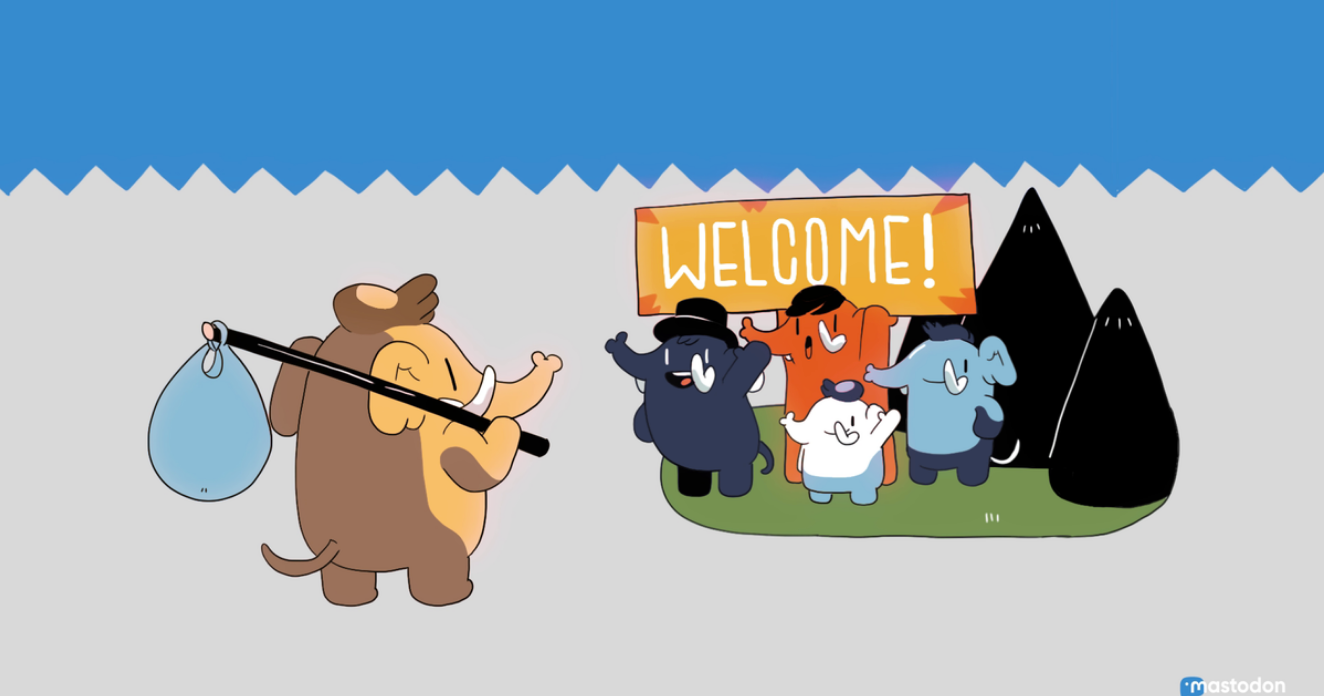
How communities are decentralizing social networking, no billionaires required.
With the mass exodus of Twitter users following Elon Musk’s takeover, alternative platforms are gaining popularity among these ‘digital refugees’. The leading choice for many is Mastodon, free and open-source self-hosted social networking. Why is it growing so fast, and why are so many instances joining Open Collective?
Mastodon was first released in 2016, created by German programmer Eugen Rochko. In stark contrast to some other social network creators, Ruchko claims he is not interested in money. Mastodon is nonprofit, free of ads, and doesn’t have a central owner. Mastodon has been built on community principles rather than proprietary commercial interests or a cult of celebrity.
Users appreciate the feature that Twitter cannot offer: decentralization. The protocol makes it impossible for one party to impose rules on the whole community. This different kind of social network is hosted on many different servers, run by various groups and individuals. It may look similar to Twitter, but the fact that it’s decentralized makes it different.
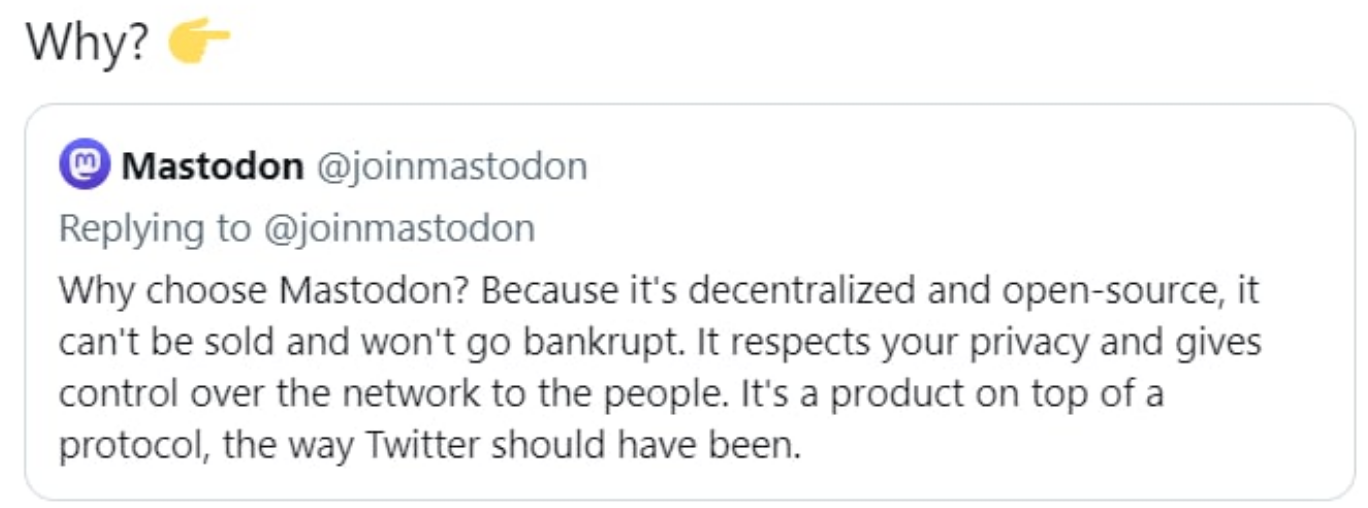
When joining the fediverse (federated + universe), a new user chooses an instance (server). Each instance has its own policies for membership and self-established moderation rules. Mastodon being “federated” means that it’s an interconnected network of autonomous communities. If you are not satisfied with the instance you joined, you can migrate your account to another instance, keeping your followers and history.

The system helps you find the right instance for you by analyzing languages spoken, number of users, interest areas, and specific moderation rules. Or you can join a closed instance, private and invite-only for a specific group of like-minded people. Instances are self-governing and self-funding.
Recently, the Open Collective CTO François Hodierne spotted an upsurge of activity in Mastodon Collectives on the platform. Many instances rely on crowdfunding to cover costs, and are seeking open source, community-oriented, transparent fundraising solutions that meet their needs.
François explains:
“In the beginning, Twitter was loved by technical people like me. Now I’m seeing those same people get super enthusiastic about Mastodon. The wave of migration is so big, and it’s really the credible alternative to Twitter. Mastodon and similar decentralized microblogging technologies have been around for years, but people were not as interested until recent developments helped people understand why it’s different. We have seen how centralization can go bad. When distributed over multiple servers, each small community can decide its own rules”.
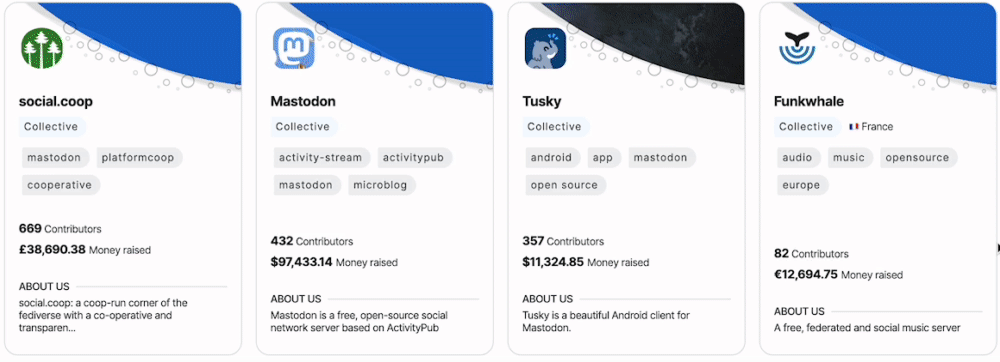
In their efforts to create safe and healthy environments for communication and collaboration, different communities face similar challenges, such as administration and privacy policies. With the sudden influx of users, many volunteer-run instances don’t have enough capacity. A side hobby or social activity has suddenly transformed into a full-time job for some admins.
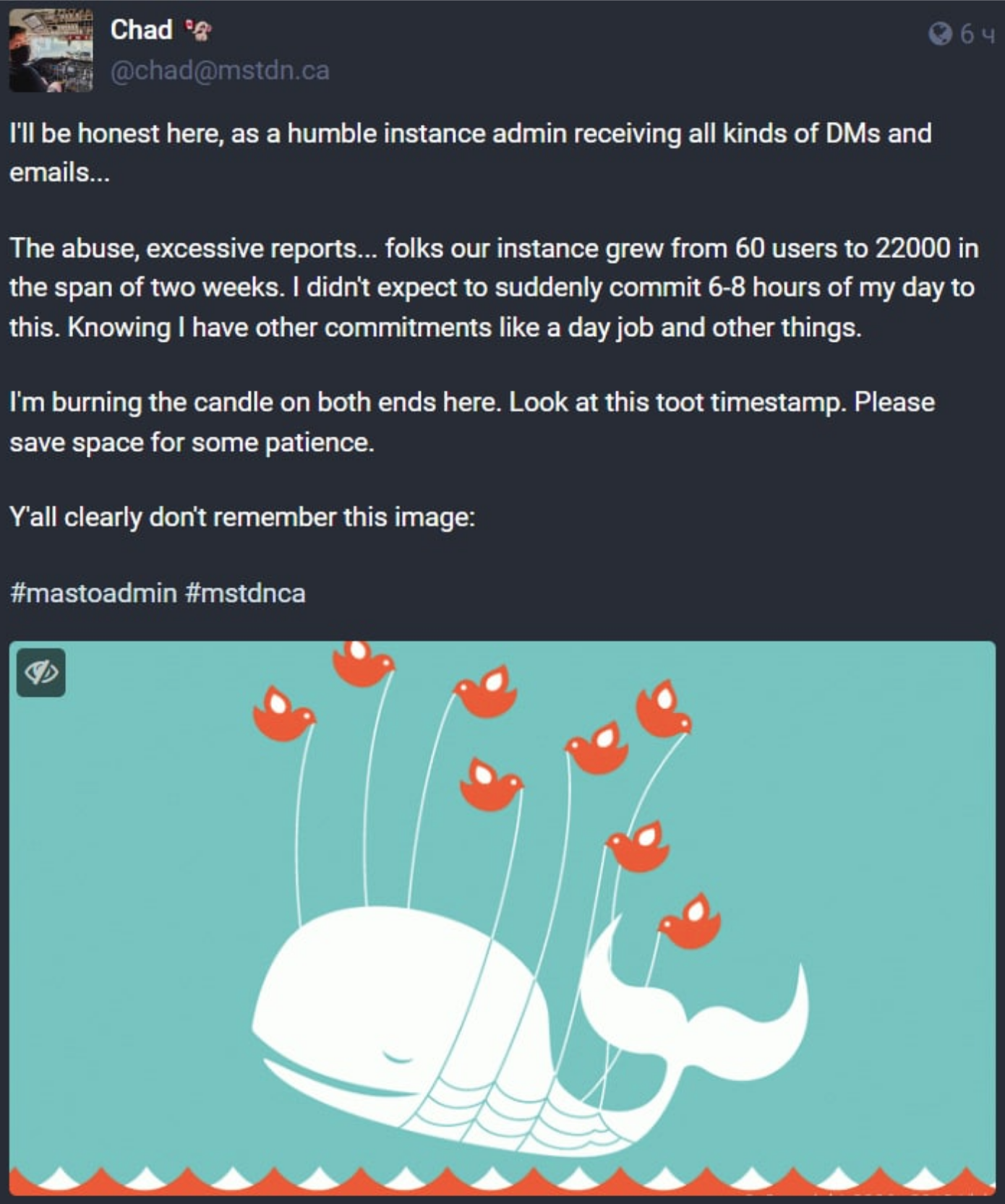
To be sustainable, Mastodon instances have to cover costs and support admins. So, how do you fund an un-owned network of autonomous open source communities? That’s where Open Collective comes in.
Ben Ramsey, the admin of phpc.social instance, explains the need for crowdfunding:
“I've been running a Mastodon server for the PHP community since August 2018. During much of this time, growth on the server has been slow, and our small moderation team has had no problem keeping up with sign-ups and abuse reports. However, that's all changed. The influx of new signups is overwhelming at times, as our moderators manually approve each registration to ensure we build a safe and healthy community, and I've had to increase the server resources to keep things running smoothly. To date, I've used my own funds to cover hosting and other associated expenses: email delivery, domain name, etc. I'm happy to continue funding this project, but many have asked how they can contribute. Since I think this is an important community resource, I've created this collective, allowing the community to share in its ownership”.
Newsie.Social, a home for journalists, newspeople, and communications professionals, has also started fundraising on Open Collective. Launched with the start of the 'Great Twitter Migration' it was initially funded by Jeff Brown of Fourth Estate. It aims to give reporters and journalists a trusted, fast, and well-moderated communication space. Within two weeks of the sale of Twitter, the community grew to 4,000 users, and currently has 10,000+ users.
Jeff Brown posted:
“We have had to upgrade the hosting services 5 times just to keep up with traffic. What started on a $39/mo hosting package is now $349/mo. We couldn't have scaled like that without your support!”
Despite raising thousands of Euros in support, the popular LURK community, focused on computational culture and politics, free culture practices, new media, software, and art, had to stop accepting newcomers. They just can’t keep up with demand.
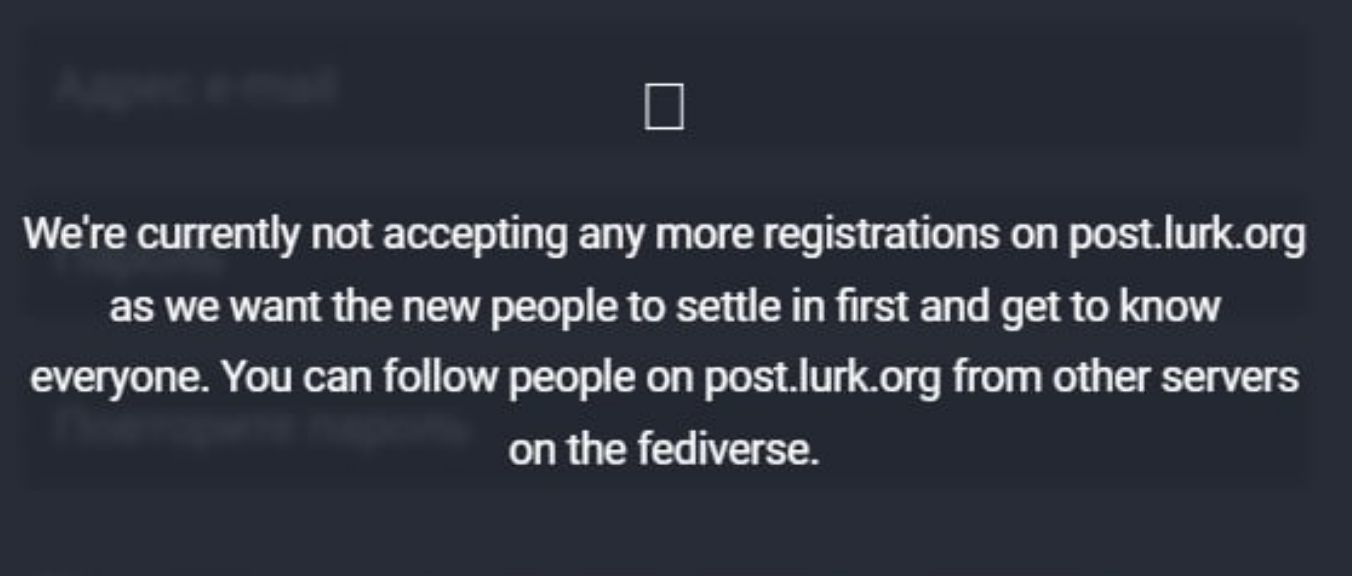
The Fediverse includes interesting alternatives not only for Twitter migrants but also for those exhausted by recent changes on Instagram. One of the most popular is Pixelfed, a federated social image-sharing platform using the same ActivityPub protocol used by Mastodon. Another open, decentralized tool is Matrix, a Slack alternative. Some communities, like NZ Federated Services, fundraise to support instances of all these tools at once. The community principle of Fediverse infrastructure makes it a convenient tool for finding a digital ecosystem that corresponds to users’ beliefs and values.
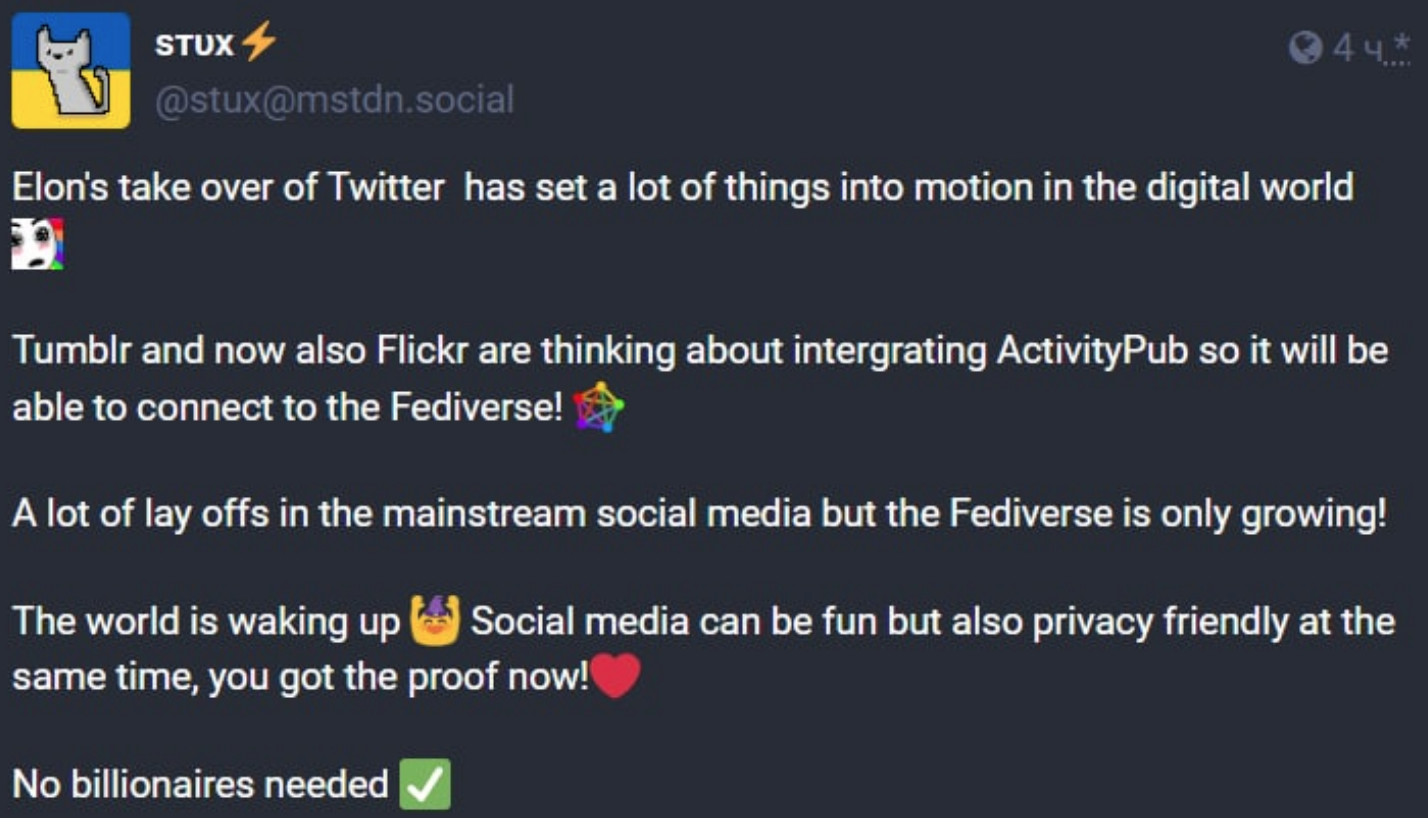
Some communities can be more general, and others are very niche, such as Solarpunk Cooperative, which promotes the values of the solarpunk movement. As well as offering Mastodon access, they provide aid for like-minded communities, defined as “an autonomous association of persons united voluntarily to meet their common economic, social and cultural needs and aspirations through a jointly-owned and democratically-controlled enterprise”. This speaks to the resonance of free, decentralized technology with the principles of the solidarity economy and mutual aid.

The members of social.coop co-own and co-govern an instance of Mastodon as common infrastructure. They are able to keep control over their social data and interactions through a trusted co-op, while also communicating with the “big, scary, wider world”. To join this community, a new member goes through an application process and accepts the core values of cooperative (anti-racist, anti-fascist, and anti-transphobic).
“Before you start tooting (Mastodon analog of tweeting), it's really important to lay the foundation of a commons. A commons is a combination of practices, culture, and relationships around common resources. To govern technology democratically, a community should have a commons in place first. If some big tech company doesn't own your community, something else needs to. Ideally, individual founders should not be personally liable for what happens on it. A great solution is to be fiscally sponsored through an Open Collective fiscal host. A shared space requires some shared economy. If one person or a small group runs [it], they will be the ones in control, in the end. To prevent that, make sure there is a way for the community to co-fund the space. We use Open Collective to manage our funds. Members can sign up there to make regular contributions, on a sliding scale based on what they want to pay. We also manage expenses and payments on Open Collective, so all our financial activity is transparent, not only to our members but to the world”.
It doesn’t matter if you’re a programmer, social activist, philosophy student, or artist. It doesn’t matter if the community you’re addressing is international or local, broad or niche. With Mastodon, you can create your own digital universe, and connect it to others freely.
Explore and support the many Mastodon communities on Open Collective!


